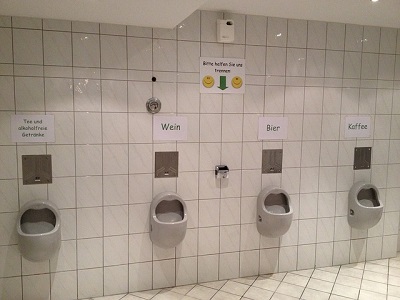What to Do About Frequent Urination, Urinary Urgency, and Incomplete Voiding?
Frequent urination, incomplete voiding, and a constant urge to urinate can be distressing symptoms that significantly impact one's quality of life.

Whether at work or during daily activities, frequent trips to the restroom not only cause inconvenience but can also lead to anxiety and unease. So, what should you do when faced with these issues?
Feeling like you haven't completely emptied your bladder, clinically known as incomplete voiding, can have various causes due to individual differences. Physiological factors such as excessive stress, mental tension, prolonged periods of holding urine, or overly frequent sexual activity can lead to incomplete voiding.
These symptoms may also be accompanied by urinary pain and urgency, which can generally be relieved by addressing the underlying triggers.
Moreover, incomplete voiding can also be associated with the following conditions:
1. Urinary Tract Infections: This is a common cause of incomplete voiding. Bacterial invasion of the urinary tract triggers inflammation, irritating the bladder and urethra, leading to symptoms such as frequent urination, urgency, urinary pain, and incomplete voiding.
Patients may also experience systemic symptoms like fever and lower back pain.
2. Prostatitis: Especially chronic prostatitis can cause inflammation that swells the prostate gland, pressing on the urethra and resulting in the sensation of incomplete voiding. Patients may also experience pain in the perineum and pubic bone area and issues with sexual function.
3. Urinary Stones: Stones in the urinary tract can obstruct the normal flow of urine, preventing the bladder from completely emptying and causing the sensation of incomplete voiding. Additionally, patients may suffer from severe renal colic, hematuria, and other symptoms.
4. Prostate Hyperplasia: With age, prostate tissue may undergo hyperplasia, obstructing the urethra and impeding urine flow. Alongside incomplete voiding, patients may experience difficulty urinating, thinning the urine stream, and dribbling.
5. Neurogenic Bladder: Due to neurological disorders such as spinal cord injury, diabetic neuropathy, etc., normal bladder function is impaired, causing weak contraction of the detrusor muscle or dysfunction of the urethral sphincter, leading to incomplete voiding.
Patients with neurogenic bladder may also experience sensory or motor disorders in the lower limbs and other neurological symptoms.
What to Do About Frequent Urination, Urinary Urgency, and Incomplete Voiding?
When experiencing symptoms such as frequent urination and incomplete voiding, seeking timely medical attention is advised. Urine routine tests, ultrasound examinations, and other checks should be conducted to determine the underlying causes. These examinations help doctors ascertain whether there are urinary tract infections, urinary system stones, tumors, or other conditions.
For urinary tract infections, appropriate antibiotic treatment will be prescribed based on the type and severity of the infection. For overactive bladder, anticholinergic medications may be prescribed to alleviate symptoms.
In cases of prostatitis, treatment options may include medication and physical therapy. For chronic prostatitis, herbal medicine such as Diuretic and Anti-inflammatory Pill may be recommended.
The pill is a type of traditional Chinese medicine known for its ability to clear heat and toxins, promote blood circulation and diuresis, and relieve urinary discomfort caused by prostatitis.
It's important to note that TCM treatment for chronic prostatitis requires time. Patients should adhere to prescribed medication schedules and adjust their lifestyle habits, such as avoiding prolonged sitting, quitting smoking and drinking, and maintaining regular sexual activity, to enhance treatment effectiveness.
While undergoing treatment, consider the following:
1. Control water intake and timing: Manage water intake appropriately and avoid consuming large amounts before bedtime to minimize nocturnal frequency.
2. Avoid stimulating foods and beverages: Reduce intake of spicy, acidic foods, coffee, alcohol, and other stimulating drinks that may irritate the bladder and worsen symptoms of frequent urination.
3. Develop good voiding habits: Avoid holding urine for prolonged periods; void promptly when the urge arises to prevent bladder overfilling.
4. Strengthen pelvic floor muscle training: Enhance pelvic floor muscle strength and endurance through exercises that involve contracting and relaxing these muscles, improving bladder control capabilities.



